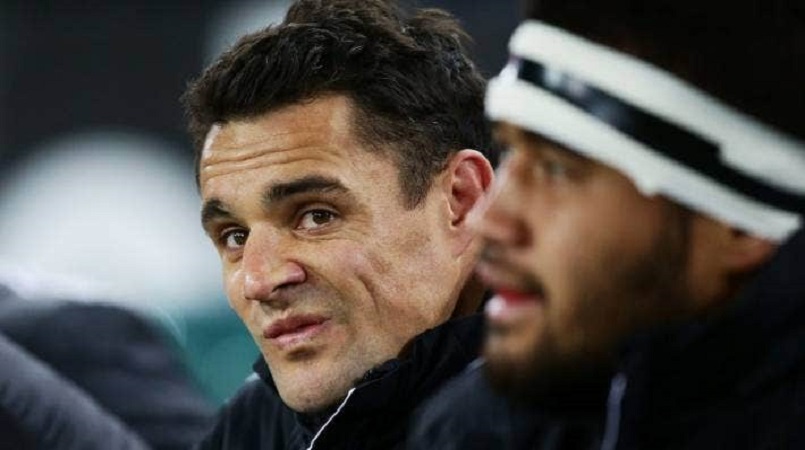
All Blacks great Dan Carter has revealed his formula to beat negative thoughts as he continues to front mental health issues in rugby.
The 38-year-old Carter has started a #keeptheballgoing social media campaign that encourages people to check in on three of their friends to "keep the conversation going" about mental health.
While Carter has achieved virtually everything in the game, including winning two World Cups and three world player of the year titles, his career has also had some difficult lows, particularly around injuries.
He said the groin injury that prematurely ended his 20121 World Cup at home had been particularly testing.
"When I got ruled out of the World Cup here in New Zealand through a serious injury, I was absolutely gutted, I was devastated," Carter told CNN.
"I'm a firm believer of things happening for a reason, but that made no sense to me at all. Why the seriousness of the injury? Why now? Why me?"
He felt maturity had helped him learn to deal with setbacks that were inevitable in life as a professional athlete.
"As soon as I realised it's actually normal to live a life on a bit of a roller coaster in terms of your emotions and how you're feeling, it didn't make me feel as bad," Carter said.
"It doesn't change that you can have these difficult times where you're locked in your bedroom after a serious injury and you don't want to confront your teammates, or you just don't want to be around people.
"I've learned sort of tools along my journey to help me get through situations like that. I always give myself a 24-hour period after a setback or an injury to deal with my emotions, whether that's crying, whether that's moping around, feeling sorry for myself.
"But then there comes a time where I need to be positive again and reset my goals, just give me some directions."
Rugby was a sport that didn’t do itself favours with its macho image, but the truth was different with surveys revealing more than 60 per cent of profession al players having mental health issues as they deal with retirement.
"A lot of us just assume that, you know -- he was an All Black or they were a professional sportsman, they'll be alright, they'll be okay when the stats show that the majority of them, over half of them won't be," Carter, who played professionally in New Zealand, France and Japan, told CNN.
"It's a big part of professional sports ... there are injuries, there are setbacks, there's a lot of self-doubt in terms of form and questioning the coaches and whether they want you or not.
"Even life after professional sport is a huge challenge for sports people. There's a lot of things myself and athletes go through."
Carter is thankful that perceptions seem to be changing, and he sees huge benefits in that.
"A good 20 years ago, there was a real mentality of toughen up, just get on with it," Carter said.
"The times have changed where it's a lot more open.
"I think there's a certain environment where you can reach out to friends or you can check in on friends and speak a lot more openly, which is amazing because it's something that wasn't around at the start of my career."
